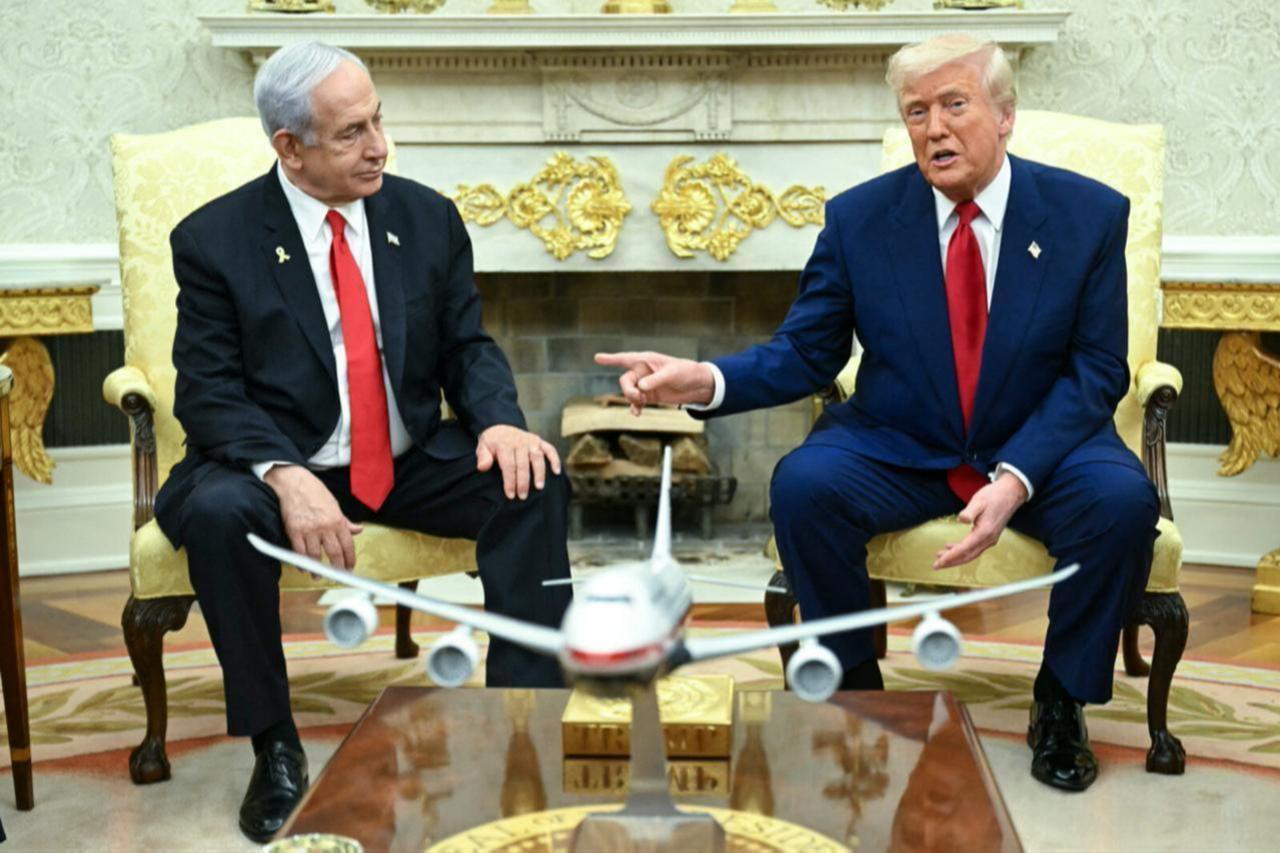
Israeli Prime Minister Benjamin Netanyahu held a closed-door meeting with U.S. President Donald Trump at the White House's Oval Office as part of his third visit to the U.S. since Trump took office in January.
The over one-hour meeting focused on ongoing efforts to reach a cease-fire in Gaza, with particular emphasis on the release of hostages and the dismantling of Hamas's military and administrative infrastructure, according to Netanyahu's post on the platform X.
“This was our second meeting this week,” Netanyahu wrote, adding that the two also discussed the ramifications of recent developments involving Iran.
According to the U.S. outlet Axios, a delegation of Qatari officials also visited the White House earlier in the day and held hours-long talks with senior American officials, in a bid to facilitate the Gaza cease-fire.
Meanwhile, Israeli opposition leader Yair Lapid accused Netanyahu of obstructing the cease-fire deal due to what he called "arbitrary red lines." Speaking to the Israeli public broadcaster, Lapid highlighted the prime minister’s insistence on maintaining a military presence in the so-called "Morag Corridor" in southern Gaza as a key sticking point.
“Is the Morag Corridor suddenly the cornerstone of our existence?” Lapid asked, calling the demand "operational" and saying it should not determine the fate of Israeli hostages.
While Hamas demands a full Israeli withdrawal from Gaza as part of any deal, Israeli media report that Netanyahu aims to maintain control over the area between Rafah and Khan Younis—known as the Morag Corridor—even after a cease-fire is reached. Hamas has strongly objected to this clause in the latest draft agreement.
On the second day of his visit to Washington, Netanyahu also met with House Speaker Mike Johnson. Following the meeting, Netanyahu confirmed progress in the ceasefire talks: “We accepted the mediator's proposal. It was a good one, aligned with the original idea from (Trump's Middle East envoy) Steve Witkoff. We believe we’re close to advancing to the next phase.”
Witkoff also expressed optimism Tuesday, noting that a 60-day cease-fire in Gaza could be agreed upon by the weekend, marking potential progress in one of the region's most protracted conflicts.